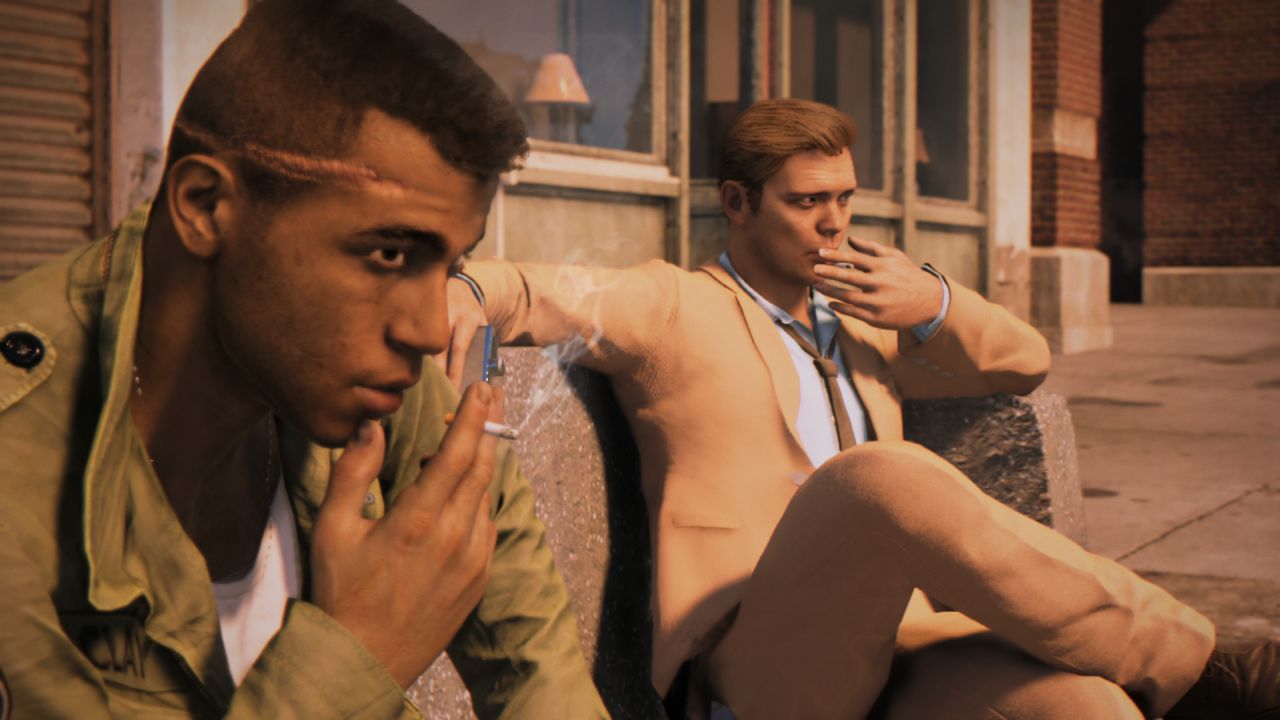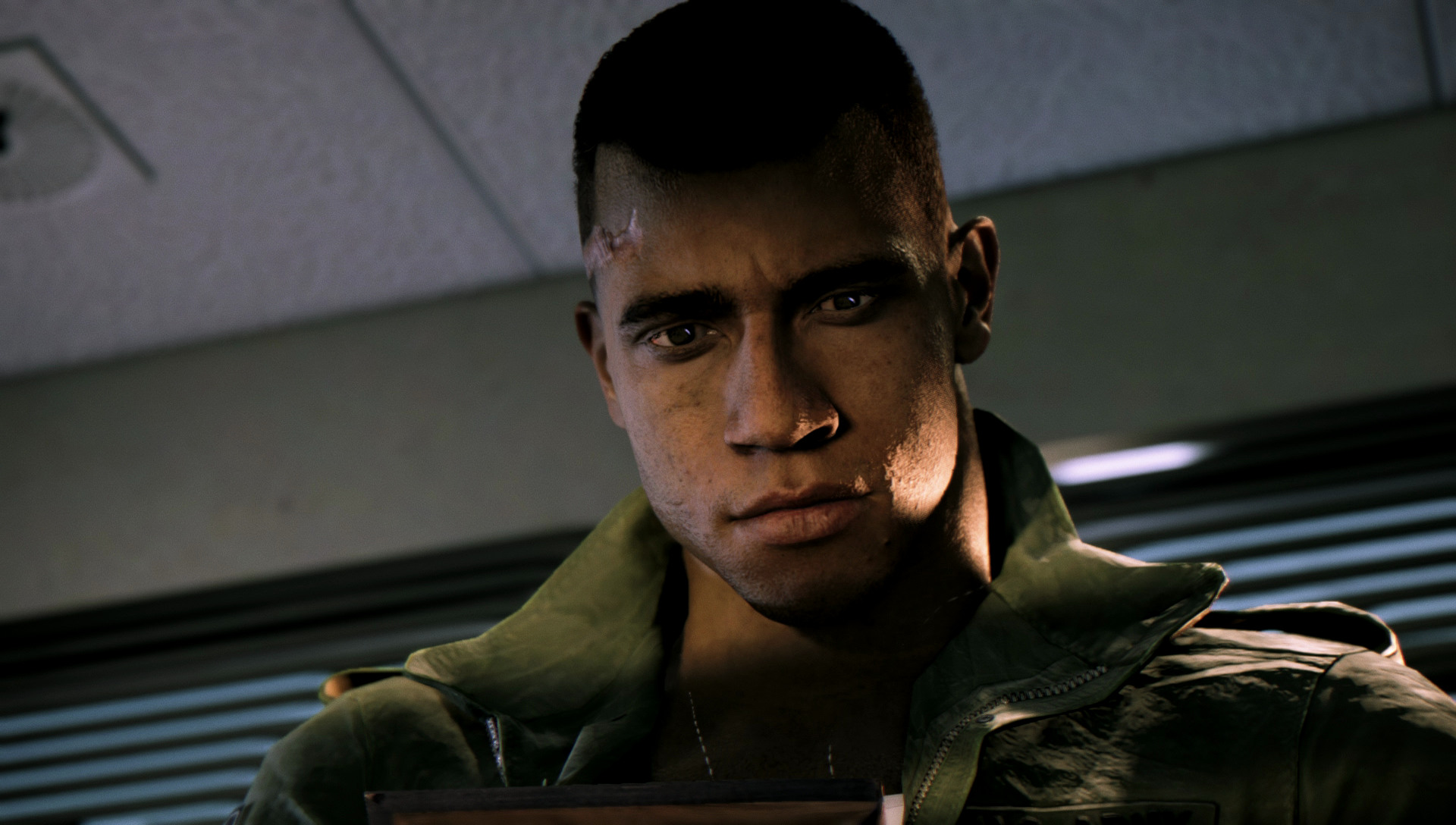This content has been archived. It may no longer be relevant
Video Games have a diversity problem. This issue comes up time to time, but hasn’t really seen significant change. RPGs aside, where you can create your own character, games don’t often have racial minorities as their protagonists. Ask any gamer and they won’t run into any trouble listing white characters from games, but ask them to recall characters of color, and it becomes alarmingly difficult. Cole from Gears of War and Lee from Telltale’s The Walking Dead spring to my mind, but beyond that, I have to search Google to discover others.
One character that will be on the tip of people’s tongues at the moment is Lincoln Clay, the biracial war veteran and protagonist of Mafia 3, which recently launched. Mafia 3, from developer Hangar 13, comfortably tackles the racism and societal turmoil rife during 1960’s America, all while delivering a compelling revenge story. Whilst that narrative is incredibly engaging 10 hours in, it’s Mafia 3’s black protagonist and racial themes that stand out for me. I hope this is something that resonates with others and teaches the video game industry some much needed lessons about race.
Across their rich history, video games have given us some truly remarkable stories. Whether it is the pulp-action adventure of the Uncharted series, or the uniquely moving stories of Journey and Ico, video games as a medium can be used to tell incredible stories and tackle sensitive themes in a unique and immersive way. Mafia 3 is further evidence of that, but shines a light on racism. Mafia 3 shows that it doesn’t just have to be a film or a piece of literature that tackles racism and discrimination. What better way to teach people about a turbulent historical period than dropping them into an authentic recreation of that world.
Charles Webb, the senior writer on Mafia 3 spoke to GameSpot about the racial tension evident in the game:
“We really just tried to make it feel like this world is reacting to Lincoln as a black man in 1968. We looked at the social issues of 1968, particularly those related to race and those related to that Vietnam War, not as set dressing but as backdrop.
“Because racism was so overt during that period we’re able to have the police and people on the street react to Lincoln in certain ways.”
Although developer Hangar 13 has the established Mafia franchise to build their game upon, they clearly weren’t concerned about shortfalls in sales because of the way it handles race. In fact, I wouldn’t be surprised if this increases the game’s sales. To my knowledge this is the first video game to explore racial tension so significantly. There was that piece of Assassins Creed IV: Black Flag DLC that tackled slavery, but Mafia 3 is a game that has racism shape its open-world, and has race at the heart of its narrative.
Believe it or not gamers aren’t all loud teenagers insensitively shouting abuse online whilst they quickscope in Call of Duty, we want complex and challenging stories from the medium. That’s why I love video games, because they can tell stories of this nature and put me in them front and centre. People often say gamers and games need to grow up. Mafia 3 is a step in that direction.
Now, Mafia 3 wouldn’t be the same if Lincoln wasn’t black. How the world reacts to him and he responds to the world throughout the story is essential to the game. On the flip side of this, whilst race is important to Mafia 3, the game also showcases how it is okay just to have a black protagonist. I am empathising with Lincoln because of the loss he’s experienced and the anger he’s feeling, not because of the colour of his skin and his position in society. His race acts as a way of enhancing the authenticity of the world he’s inhabiting and serves as an interesting narrative lens. Lincoln, and you as the player, experience prejudice in subtle ways like not being able to walk into certain stores, but it’s the racial strife stretching across the world, another of the game’s characters, that is affective.

Look at a title like Watch Dogs 2 for instance. One of Ubisoft’s marquee franchises and a tentpole game this fall, has a biracial young hacker as the lead. It’s not exploring heavy racial themes, that just happens to be the race of the character. Which is great because, although I don’t necessarily relate to white characters in games because of their skin colour, black people may relate a little more to Marcus because their race is so underserved in games. Even if no one relates to Marcus and his journey in Watch Dogs 2, the important thing is representation.
We have Mafia 3 which revolves around, but not entirely focused on, racism in the 60s’, and Watch Dogs 2 that simply has a black protagonist. What the video game industry needs to do now is embrace that even more. Having a black character in your game doesn’t mean it has to revolve around some sort of social commentary. A black man can be the protagonist in the next Naughty Dog game or Tom Clancy title from Ubisoft.
At the same time however, it shouldn’t just become diversity for diversity’s sake. If the story you want to tell involves a white character, then fine. But the stigma surrounding race and gender in video games affecting sales and appeal needs to go. We may think it has, but these conversations wouldn’t be ongoing if that were the case. A greater proportion of games needs to reflect the diverse array of people that play them.
Mafia 3 should be applauded for not only exploring the racial injustice and sociopolitical turmoil of 1968 so directly, but for also simultaneously having a black character not be there entirely as a victim of the themes at hand. This is a guy I’m growing to route for throughout the story, that isn’t perfect, and isn’t placed in a bubble to avoid hurting the feelings of those that are the same race as him. He’s a complex, powerful, multidimensional character, just like other great video game characters.
Mafia 3’s creative director, Haden Blackman told GameSpot:
“I think there’s a real tendency to take a character like Lincoln and put him up on a pedestal because we’ll be seen as insensitive if we don’t make him perfect. But for me, that would be even more insensitive and worse than showing him as a real person.”
That is what Mafia 3 does so beautifully. As such, this game should teach the industry that it’s okay to tackle race thematically.
Images: 2K


